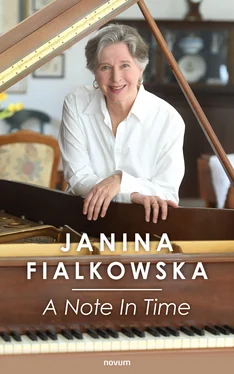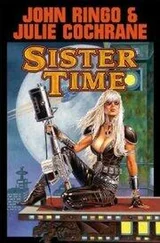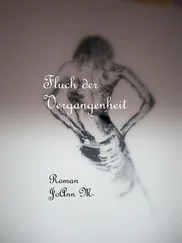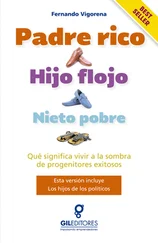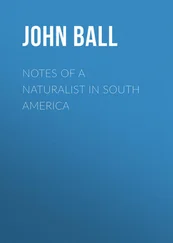From the clock on the wall opposite I calculated that I had already been in the hospital for nearly twelve hours. It was 6:00 pm on January 31st, which just happened to be Harry’s birthday. Sitting miserably in a hospital was not the way I had envisaged my newly acquired husband celebrating his birthday, but it seemed as though greater forces had seized control of our common destiny, altering the course of our lives and steering us into dangerous whirlpools and eddies.
Up until that day my life had been a seesaw of the glorious highs and desperate lows typical of a performing artist with a demanding schedule. Nevertheless, over the years both body and mind had received quite a battering, which I had ignored. I had managed to bounce along unchecked, riding on my innate stubbornness, basic good health, and a large dose of childish naivety.
This time, however, the events leading up to the biopsy had been simply too much even for a tough campaigner. The camel’s back was succumbing not to the proverbial straw, but to a giant bale of hay. As I waited for medical science to reveal the next phase of my life, my mind, in a futile attempt to disassociate itself from the present, harkened back not to a happier distant past but to the past year, starting with another birthday and another life and death drama that had occurred eight months previously.
We should have been celebrating my fiftieth birthday, but the day was spent in transit from Knoxville, Tennessee, where I had been playing on tour, to Montreal, where my mother had been rushed to the hospital. I spent the next two weeks at her bedside watching her die. She had a virulent form of leukemia and had developed bronchitis, a fatal combination. I learned a lot during those two weeks about courage and dignity, about unconditional love and about the incalculable power of a sense of humour. My mother showed no fear, was invariably courteous and accommodating to the overworked nurses, and made witty comments to try to lessen my concern and grief, right up until the moment she slipped into a final coma. She had taught me how to play the piano with honesty; she now taught me how to die with integrity.
Shortly after, at the beginning of June, Harry and I were married in a private ceremony held in the Bavarian village where he had grown up. It had required the written permission of the Highest Court of Bavaria and an onerous, transatlantic quest to assemble all the correct and pedantic documentation (not helped by the fact that, fifty years prior, the wine at my christening must have been flowing quite freely, as the officiating priest had misspelled both my father’s and my names on the baptismal certificate). Considering the death of my mother only weeks before and given that neither Harry nor I had ever wished for a huge wedding, only Harry’s mother and brother and a few of our closest friends were present. Everyone except me seemed to be shedding copious tears during the service. As for myself, I was intent on understanding what the nice lady registrar, who was marrying us, was saying. My comprehension of German was somewhat feeble at the time, and I was desperately trying not to say the wrong thing at the wrong time. However, in the end I managed a resounding “Ja.” at the appropriate moment, which was a colossal relief.
In the back of the room, Sena Jurinac, legendary star of the Vienna State Opera and one of Harry’s closest friends, commented in a clear stage-whisper that the registrar’s speech was unintelligible: no one seemed to know how to project their voices nowadays. The sobs now became punctuated by an occasional giggle.
Our wedding lunch was held, romantically, in the little country restaurant where Harry and I had had our first meal together alone.
There was no suggestion of a honeymoon due to time restraints. Instead, we had a weekend in the mountains at a delightful bed and breakfast, accompanied by three of our closest friends who had come from Northern Germany and California. It rained the entire time, but our party was merry, and I regretted having to go back to work on Monday.
Over the next three months I flew back and forth to Germany as often as possible between concerts in North America, trying to maintain some semblance of a normal married life. For years I had firmly maintained, both publicly and privately, that marriages and concert careers for women were incompatible. I was now determined to disprove my own theory. Being the spouse of a performing artist can be a thankless task; always tiptoeing around the neurotic spouse on concert days, making sure there are no disturbances, always playing the secondary role, the person in the background, the support, the nanny, as well as the lover, suffering right along with all the pre-concert anxieties but never having the opportunity to dispel the personal stress. The performer has the cathartic concert, the applause, the compliments, while the spouse continues to suffer long after the concert reception is over. Then there are the long separations – I didn’t know how we would manage, but I was determined our marriage would work.
Harry, who was running a “period instrument” festival in the Allgäu region of Germany, had a hard time getting away, so I did most of the travelling back across the Atlantic. He did, however, manage to escape for a weekend in July, when I performed the Paderewski concerto in the pouring rain during an outdoor concert in Quebec City for a sold-out crowd of umbrellas, followed by a wonderful memorial party for my mother in the old family home near Montreal. My brother and I celebrated her life with family and best friends showing old family movies dating back to the 1920s and consuming vast amounts of delicious food and champagne. It was a marvelous party; my mother would have loved it.
The next day I drove back to the States and Harry returned to Germany. I had a string of concerts to perform and a CD to record, which translated into over six hours a day practising hard at the keyboard. I never minded this kind of intensive work. In fact, I loved seeing the pieces slowly taking shape and reaching performance level. It’s a little rough on the body, but I had always been one of the lucky ones, never having suffered from the normal pianistic ailments of tendonitis, carpal-tunnel syndrome, or just plain old muscle strain.
By the end of August the concerts were over, the CD of Liszt Etudes was complete, and I slipped eagerly into my unaccustomed role of “Frau Intendant” or “Mrs. Director” throughout Harry’s festival. The “Klang&Raum” (Sound and Space) festival was Germany’s premier period instrument festival and had been administered and nurtured by Harry since its inception nine years previously. It was a unique blend of excellent concerts and recitals, all performed on historically accurate period instruments of the baroque and early classical eras. It was held in the church and in the adjoining seventeenth-century Benedictine monastery (now transmuted into a hotel/conference centre) of the picturesque village of Irsee in the foothills of the Bavarian Alps. Coincidentally, the festival’s orchestra in residence was the Canadian-based Tafelmusik, so at least half the orchestra members were people I already knew.
There were also marvelous meals, excursions through the lovely Allgäu countryside in horse-drawn carriages, and picnics in Alpine meadows. Harry, who had built the festival up from scratch, was on friendly terms with just about everyone who bought a ticket, and there was a family atmosphere that encompassed not only the public but the administration, the kitchen staff, the stage crews, the musicians, and the sponsors. People returned year after year from as far away as California and Japan.
But smooth-running, happy festivals don’t happen by themselves, and a price must be paid by someone. It was an intensive two weeks – rehearsals, then six days of performances with up to three concerts a day, intertwined with gourmet feasts, official dinners, sponsor events, lectures, and endless speeches. I loved it all – except for the speeches, which tended to drag on for hours, and the cocktail parties, where I attempted to converse wittily and intelligently in German. I took my role of “Frau Intendant” very seriously, but most likely failed miserably, since the art of small talk, even in my own English and French, eludes me totally.
Читать дальше
